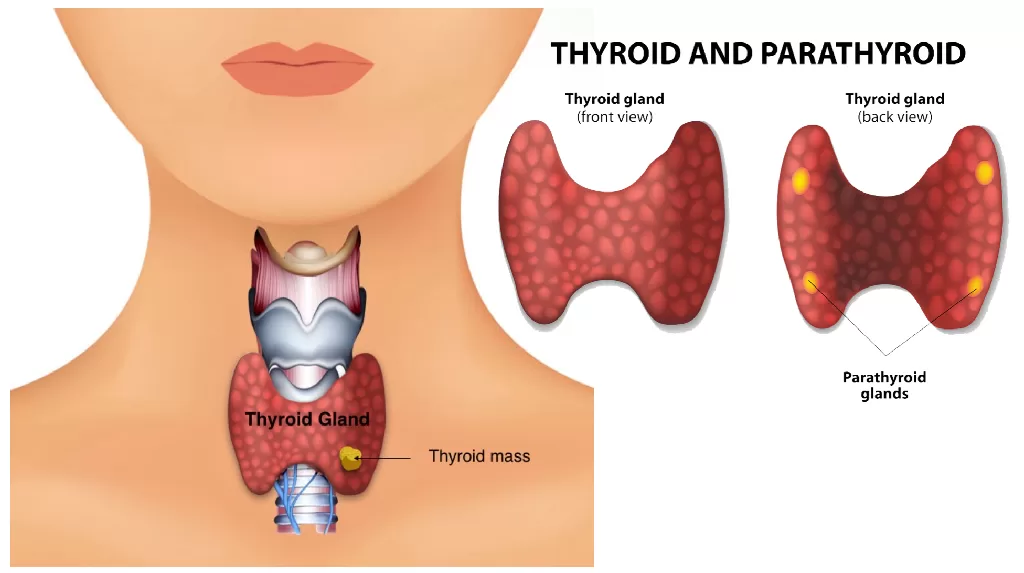
January is Thyroid Awareness Month, dedicated to raising awareness about an often-overlooked gland that plays a crucial role in our overall health. The thyroid, a small butterfly-shaped gland located at the base of the neck, produces hormones that regulate metabolism, energy levels, and even sleep patterns.
For millions affected by thyroid conditions like hypothyroidism, hyperthyroidism, or thyroid nodules, understanding how thyroid health impacts sleep can be essential for managing symptoms and improving quality of life. Prioritizing healthy sleep can be effective in thyroid management, especially when navigating treatment.
How Thyroid Issues Impact Sleep
The thyroid influences many bodily processes, including the quality of our sleep. Thyroid issues are typically categorized as either an overactive thyroid (hyperthyroidism) or an underactive thyroid (hypothyroidism). Each of these conditions presents unique sleep challenges.
Hyperthyroidism can increase the body’s metabolism, causing symptoms like rapid heart rate, anxiety, and a sense of restlessness. These symptoms make it difficult to settle into a restful state, often contributing to insomnia and frequent nighttime awakenings. People with hyperthyroidism may also experience night sweats that interrupt sleep cycles, a common complaint reported at sleep clinics.
Hypothyroidism, or an underactive thyroid, can lead to excessive daytime sleepiness and fatigue. Hypothyroidism slows down bodily functions, making patients feel low on energy throughout the day, which can disrupt nighttime sleep patterns. People with hypothyroidism may find it challenging to achieve the deep, restorative stages of sleep, leading to a persistent feeling of grogginess even after a full night’s rest.
Can Quality Sleep Prevent Thyroid Problems?
While sleep alone can’t prevent thyroid disease, prioritizing good sleep supports overall health and may lower the risk of issues that exacerbate thyroid dysfunction, such as weight gain, stress, and immune imbalances. Research has shown that chronic sleep deprivation can impair immune function, which is especially relevant since autoimmune responses are a leading cause of thyroid disease, particularly for conditions like Hashimoto’s thyroiditis and Graves’ disease.
Although there’s no direct evidence that poor sleep directly causes thyroid problems, an immune system weakened by inadequate rest may have a harder time managing these autoimmune responses.
Sleep also plays a role in weight management, which can be crucial for thyroid health. Weight fluctuations are common with thyroid problems, and sleep deprivation is known to affect appetite-regulating hormones. A healthy sleep schedule can help regulate stress levels, support immune function, and maintain a balanced metabolism—all factors that collectively benefit thyroid health.
Sleep’s Role During Thyroid Treatments
For those already diagnosed with thyroid issues, prioritizing sleep can ease the challenges of treatment. Adjusting to thyroid medication can take time, with many patients experiencing side effects like fatigue, mood swings, and sleep disturbances. A good night’s sleep can help the body better adapt to these treatments and improve energy levels, especially as hormone levels stabilize.
To support restorative sleep during treatment, consider establishing sleep hygiene practices that make it easier to wind down. The American Thyroid Association recommends setting a consistent sleep schedule, avoiding screens before bed, and creating a calming bedtime routine. For those undergoing treatment, sleep can be critical in reducing symptoms like irritability, improving focus, and lessening the chances of depression.
Another useful strategy is to manage light exposure. For people with hypothyroidism, exposure to natural sunlight during the day can help regulate the sleep-wake cycle and improve energy levels. Those with hyperthyroidism, who may experience a heightened heart rate and anxiety, can benefit from relaxation techniques such as meditation and deep breathing before bed to lower heart rate and promote restful sleep.
Taking small steps toward healthier sleep can make a significant difference for those with thyroid conditions or anyone looking to reduce their health risks. While there’s no guarantee that sleep alone will prevent thyroid disease, a focus on sleep hygiene can help support immune health and regulate appetite, both of which play a role in thyroid health.
Connect with The Alaska Sleep Clinic to get your quality sleep on track for a more complete recovery from thyroid disease.












